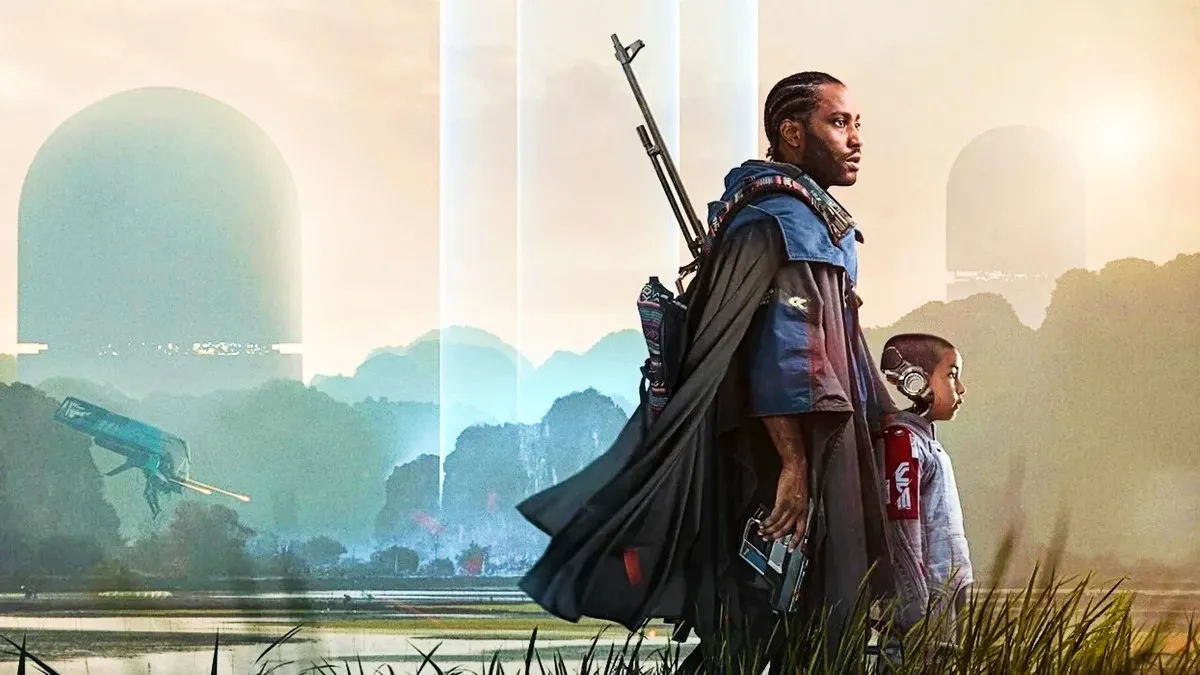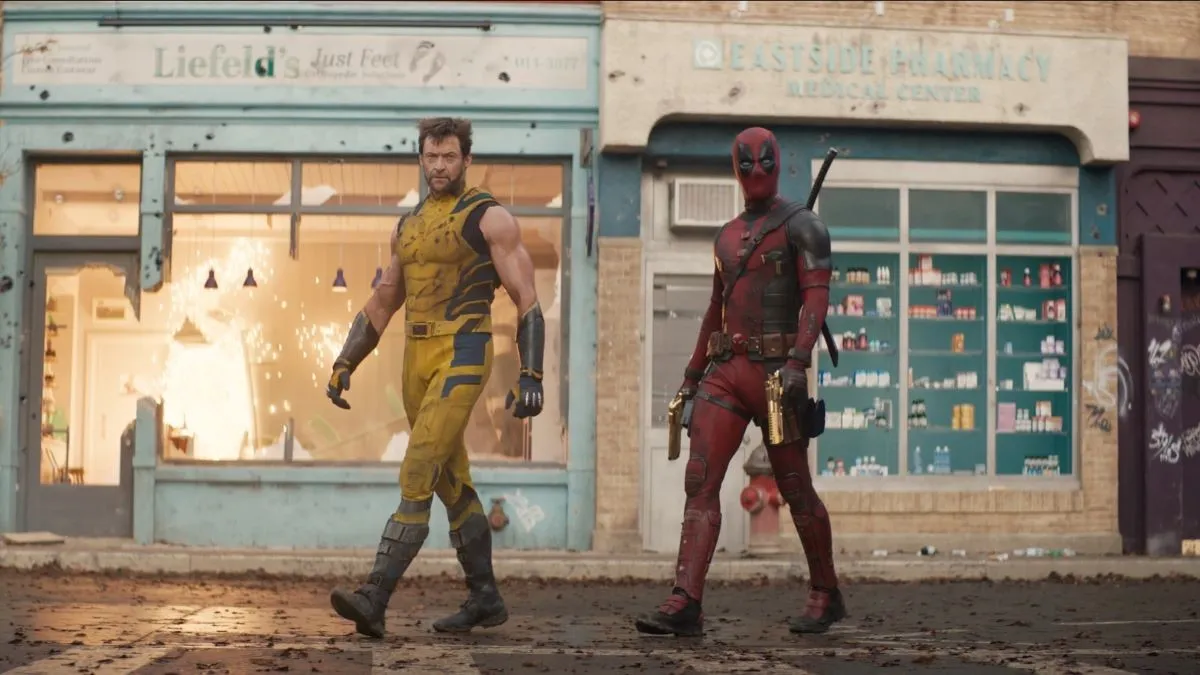The Creator, Rogue One director Gareth Edwards’ new science fiction epic, is a kaleidoscope of different elements: cutting edge technology and traditional cultures, oppressed artificial intelligence and wary human beings. Making a film like this one a reality, especially in the middle of the Covid pandemic, is no mean feat.
Our Rachel Leishman sat down with The Creator producer James Spencer to talk about AI, casting questions, and bringing a filmmaker’s vision to life.
Unlike Rogue One, people are going to have to understand the world of The Creator straight out. There’s no lore that we have going into this story. Is there anything that you’re looking for on paper beforehand to get you invested into something? Or when it comes to Gareth Edwards, are you into it right off the bat?
It’s a bit of both. I think the reality for me as a producer is that I’m always script-driven. You have to read something and be excited about it. But I would also say that Gareth and I know each other incredibly well. We’ve known each other for 20 years, and I’ve seen from the beginning of his career that he’s someone that just sees the world in a completely different way to anyone else I know. He has such an extraordinary vision that I can read that material and have a good idea of what he might be thinking. With this movie, we’re trying to make something more naturalistic and a bit more soulful, but at the same time we wanted it to have that epic scale. It took a bit more thinking about how we might achieve that.
Did it help to have the scale of Star Wars to come before it?
I think that sense of scale is just in Gareth’s DNA as a filmmaker. I think the Star Wars thing helps, but he also has such an original take on how he sees the world.
The Creator has this heartbreaking story taking place in the middle of big battles and explosions, where there are lines and moments where you wonder, “what am I doing crying over this random scene in an action movie?” Did you have any fears about telling that kind of story?
It makes me incredibly happy. What we set out to make was something more emotional, something more soulful. And if you can meld those two things together, then that’s gotta be the best of both worlds. You’ve gotta have that emotional attachment to a character. And yeah, Gareth is very good at turning that on and upsetting people, especially at the end of the movie. He loves a good ending, or a bad ending, depending on how you look at it.
Producers are often depicted as being about just money, money, money. But a lot of producers, when they talk about movies, you can tell if they have a connection with a director. For you, since you’re the one with the money, is that connection important for you to have with the creatives you’re working with?
I’ve got a job to do in terms of looking after the money, and that’s very important. But thing about that relationship with a director is that Gareth is someone who understands, and takes that responsibility very seriously. In a way, you’re already halfway there because it means we can have difficult conversations. He’s also very good at his job. He pushes very, very hard and he gets people to work very, very hard and deliver his vision. So there’s always going to be tension there.
But at the same time, I’ve got a pot of money and it’s my job to make a plan with him about how we can be as lean and mean as possible to deliver exactly what he’s seeing. That [involves] a lot of listening, and then working out together how we’re going to go about that. You know, he designed the entire camera system—and I mean everything—from the ground up. We shot on very unconventional cameras, but it meant they were very lightweight, which meant we had lots of different setups ready to go so he could move quickly. He wanted a very small set where there was literally him and the actors and no one else. That gave him the ability to just be close to the actors and shoot very long takes, so that he could get the performances he was after. So it’s really about that approach, and how to best utilize technology to make that happen.
Speaking of the cast, there are a lot of people in The Creator that we all know and love, but there are new faces, too. When you two approached casting, was it more about finding a cast that worked with this particular project, or more about finding that star who would drive people to the theater? Or is it all about character?
It’s always going to be a bit of both, isn’t it? Of course you want a cast that’s going to draw an audience. That’s really important, but Gareth is incredibly driven by just very good actors. He really goes a long way to make sure that happens, especially with the casting of Madeline Yuna Voyles (Alfie). That was a very wide casting call, and he put in a huge amount of time and effort to really track her down. And man, it paid off. All the other actors were like, “Okay, now I’m gonna have to hit her level.” She absolutely extraordinary.

The other thing is that this is a very specific sort of movie. We went to a lot of countries, we traveled about 8,000 kilometers, we shot in, like, 80 locations. That takes a certain type of actor as well. Remember that it was during Covid as well, which was an added complication. The cast truly was a bunch of actors who were absolutely prepared to go on the journey and work in a different way to realize what Gareth wanted.
What do you hope audiences take away from The Creator? Because this film is so heavy with the threat of A.I. looming over us daily.
Obviously it’d be great if the movie is thought-provoking in terms of the AI and that undercurrent of the story. But ultimately, as a producer and a filmmaker, you want people to be entertained. I hope we’ve made something that’s epic, but that’s also heartrending and soulful, and that some of the imagery and world building stay with people and make them excited. I want people to be immersed in an absolutely fantastical world for a couple of hours, hopefully in a way that’s more a bit more naturalistic, just a bit closer to reality. Albeit, you know, 50 years in the future, that there’s something people can feel of the real world within our film world.
(featured image: 20th Century Studios)











Published: Oct 10, 2023 05:52 pm